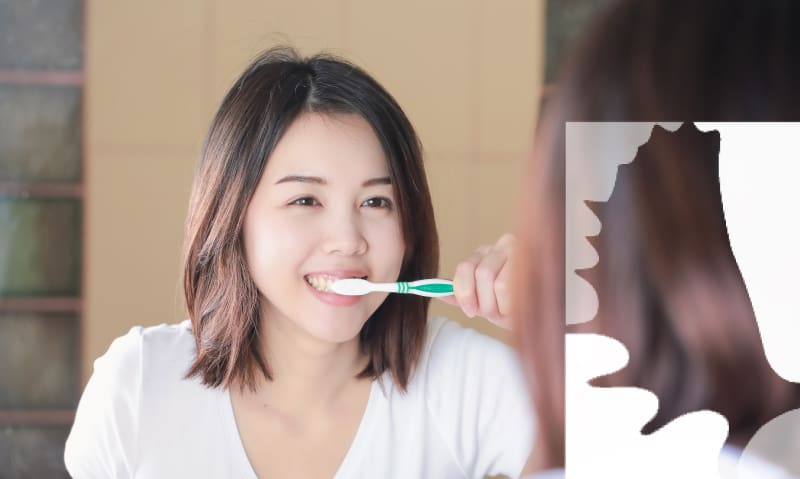Surprisingly Common Ways Mental Health Impacts Your Oral Health

Your mental health can impact your oral health.
Everyone struggles in one way or another at some time, and while it is OK to struggle and have a hard time with things, it is important to make sure you are still taking time out of your day for yourself, including participating in an oral health routine. Your mental health is a top priority, and if you aren’t on top of that, it can have an impact on your oral health too.
It can discourage you from sticking with a routine.
One of the side effects of many mental health conditions is losing interest in doing things. This can include pulling away from participating in your favorite activities and limiting communication with the people you love. Additionally, some people find that when they feel depressed or anxious, they just can’t find the energy to do basic daily activities, like showering or brushing their teeth.
One way to help you conquer this fatigue and disinterest is to focus on just one thing at a time. Don’t try to push yourself to do too much at once. Maybe try to brush your teeth before bed one day, then work up to brushing your teeth twice a day the following day. Some people find that writing a checklist helps, as it encourages them to check something off and see their progress.
While depression and anxiety can make you not want to complete a task, the opposite is true if you suffer from obsessive-compulsive disorder, or OCD. Those who have OCD could find themselves overdoing it when it comes to their hygiene routines, which could lead to overbrushing.
If you are suffering from a mental health condition, seeing a therapist can be beneficial to your well-being, as they can encourage appropriate coping mechanisms to help you work through your feelings.
Eating disorders can affect oral health.
Just like other mental health conditions, eating disorders can affect your oral health. Sometimes, the first signs of an eating disorder are changes in the mouth.
Eating disorders can damage teeth and gums because of the change in diet and lack of vitamins and minerals needed to keep your teeth in tip-top shape. If someone has an eating disorder where they are vomiting or purging, the excess stomach acid that ends up in the mouth eats away at the teeth, which promotes tooth decay and eventual tooth loss if left untreated. Diet changes also affect your saliva. A change in the saliva’s pH can create an environment that leads to tooth decay and red, irritated gums.
Poor oral health can impact mental health.
If you have poor oral health, that can, in turn, affect your mental health. If you don’t brush and floss your teeth regularly (and properly), it can lead to tooth decay and gum disease. This can affect your smile to the point you may feel self-conscious and cause your mental health to suffer as well because you don’t feel as confident or outgoing.
Mental health and oral health really do go hand in hand, so it is important to keep both in check. If you find it difficult to maintain an oral health routine, be sure to ask your dentist, as they can recommend tailored tips and tricks to make it easier to stick with your home care regimen.
Be honest with your dentist.
If you’ve been having a hard time managing your oral health routines, never feel embarrassed to tell your dentist. Our team at Valley Dental Clinic is here to help you maintain your smile, so having this information helps us provide the absolute best dental care and experience based on your needs.
Studies say as many as 20% of adults suffer from dental anxiety. Don’t let this anxiety keep you from seeing Dr. Robinson and our team at Valley Dental Clinic. We work with patients daily who feel the same way, and we want nothing more than to help you maintain your healthiest smile as well. At Valley Dental Clinic, we are compassionate and understanding, and we are just happy you are coming in to address your dental issues. Be sure to let us know if you’ve been struggling with your mental health lately—because it isn’t uncommon—and we’ll work with you to get back on track with your oral health routine.
Your dental office is a safe space, and your feelings will be honored and respected. We aren’t here to judge—just to help you get the best dental care you can get. Are you overdue for a preventive cleaning and evaluation? Schedule your next appointment with us today. We look forward to the opportunity to help you reach and maintain optimal oral health.